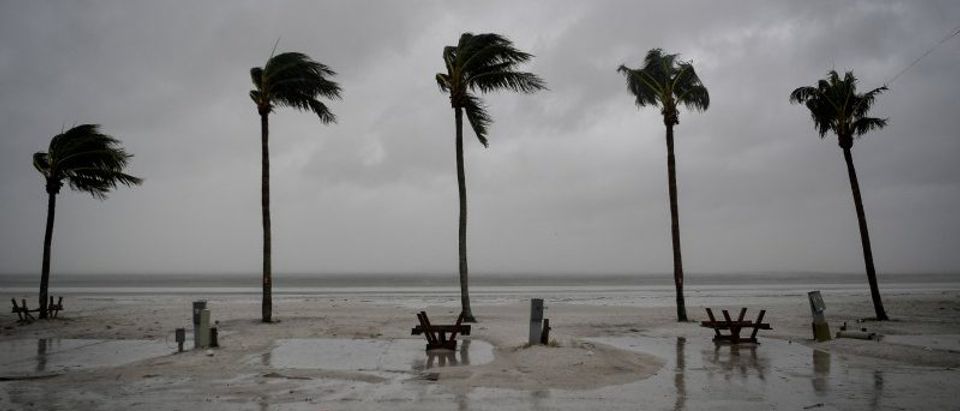“Ppl may die and airlines are charging $1500 for one way tickets to escape #IrmaHurricane. Shameful price gouging.”
That Tweet, and similar comments, have been circulating as South Florida residents struggle to escape the natural disaster. And indeed, high prices for lifesaving goods and services can appear callous and offensive, with corporations supposedly putting profiteering over relieving people’s suffering.
Now, with a hurricane, it’s certainly true that “ppl may die” – but deaths are more likely from airline prices being too low than from being too high.
When there is a limited supply of a good, even a lifesaving good – in this case airplane seats – there must be a mechanism to distribute them. A lottery system might be a fair way to allocate them, but impractical to organize last-minute and in the chaos may even lead to empty seats. The other two options are “first-come, first-served” and market pricing. Of the two, allowing higher prices by far leads to the best result.
Let’s accept that the lives of wealthier Floridians are neither more nor less valuable than any others. Indeed, Hurricane Irma is not the Titanic. But the evacuation of the largest number of Irma refugees is more important than ensuring that everyone has an equal chance at escape – not only to maximize immediate rescue but because minimizing the number of people remaining after the storm greatly eases the clean-up effort.
And if the goal is to facilitate the escape of the highest number, airlines need not apologize for raising prices, even sky-high.
It’s true that some Americans (mostly Democrats) value equality more than human flourishing, but their position is reprehensible. The goal should get the most people out of harm’s way, and if that means a greater percentage of them are wealthy, so be it.
At the very least, airlines should double fares without apology. How could they not? The planes are nearly empty on the way in. If an airline like JetBlue wishes simply to match its pre-Irma revenue, which may or may not have been profitable, it needs to charge double the standard price.
If prices are artificially low, airlines won’t have the incentive to go into overdrive to get people out. Many airlines have already expanded flights to handle the increased demand. But have they done everything possible? Southwest has no red-eye flights, for example. If they could charge very high prices, perhaps they would offer extra pay to personnel and create extra flights to shuttle passengers out of harm’s way. Even if that’s impossible for structural reasons, other airlines with a profit incentive might look harder for ways to send larger planes and create more flights. And some of what airlines have done – like the obscene Southwest publicity stunt of a plane filled with cats and dogs from rescue shelters – might not happen because of all the money to be made from paying two-legged customers.
Hurricanes or not, airline prices surge whenever demand is great, such as for Super Bowl weekends and national political conventions. If airlines kept prices flat for events like that – or for hurricanes – the people getting tickets first will be the ones who spend enough time on the Internet or the phone or standing in line trying to get tickets – time that could be better spent preparing for the storm. Most will be disappointed anyway.
Artificially low prices for water (or free water, for that matter) during a storm cause people to hoard water for non-urgent purposes, or “just in case” – while others have little or none. Similarly, airfares below what the market can bear mean people whose secure domiciles will almost certainly survive the storm may choose to leave anyway, as will some inland dwellers merely annoyed by excessive rain. High prices are in fact the only practical way to keep such people from swiping airline seats from those who need them more.
The only reasonable objection I’ve heard to allowing airlines to jack up airfares before a storm is that people will choose not to get out early, and thus seats will be empty on early flights. But those early flights take place before even meteorologists know just how bad a storm will be. Hurricanes expected to be disastrous often peter out – and people on the lower end of the income scale can rationally decide early on to stay put until the extent of the storm is clear. Their wealthier neighbors can more easily take the financial risk of evacuating and coming back should the danger pass.
Airlines that have been lowering fares under public pressure are making a mistake, because price is the best way to sort out the Floridians who urgently need to leave, and thus maximize the number of lives saved. A better plan would be for airlines to set prices at market rates, but then donate significant sums to hurricane relief efforts.
In times of distress, people’s general theoretical disdain for high prices should take a back seat to finding a plan to get the largest number of the most threatened people out of harm’s way. And “price gouging” is the best way to do that.
David Benkof is a columnist for The Daily Caller. Follow him on Twitter (@DavidBenkof) or Facebook, or E-mail him at DavidBenkof@gmail.com.


